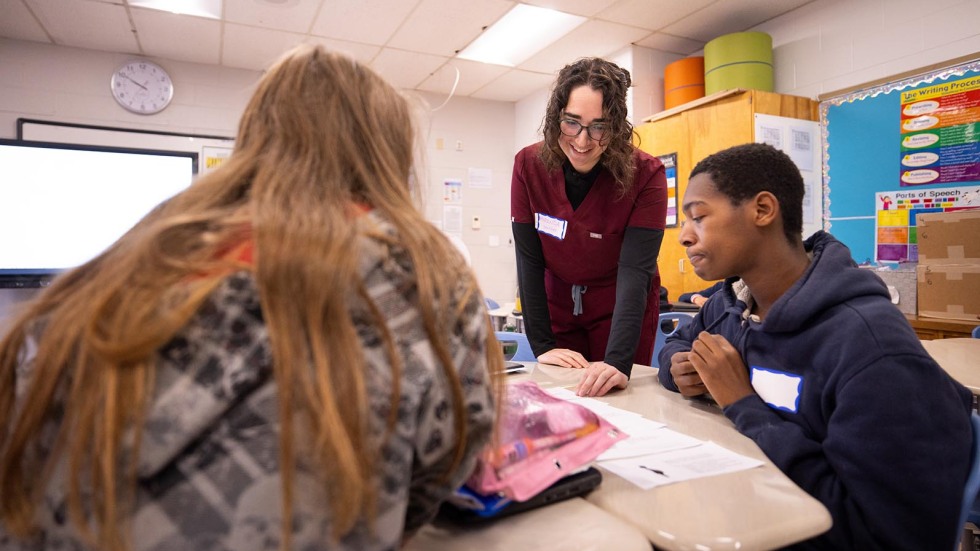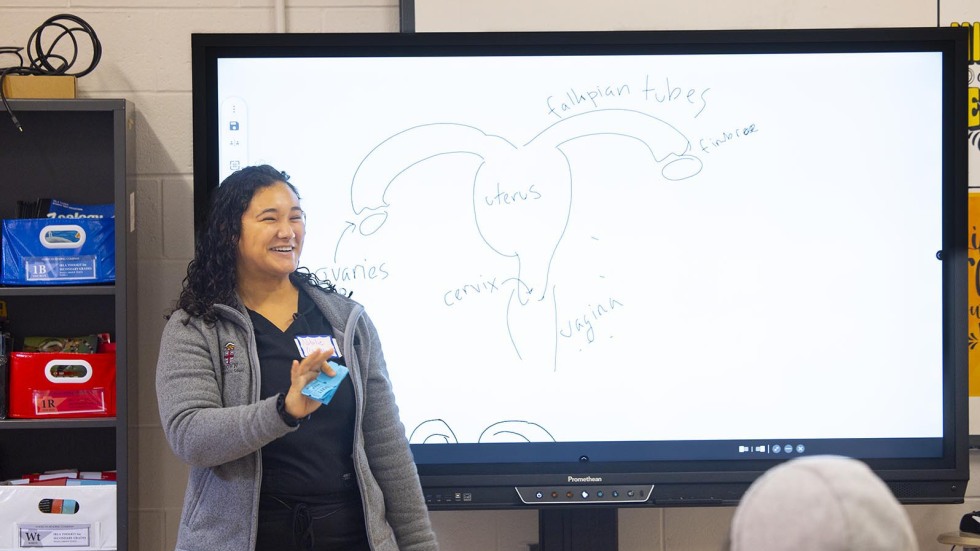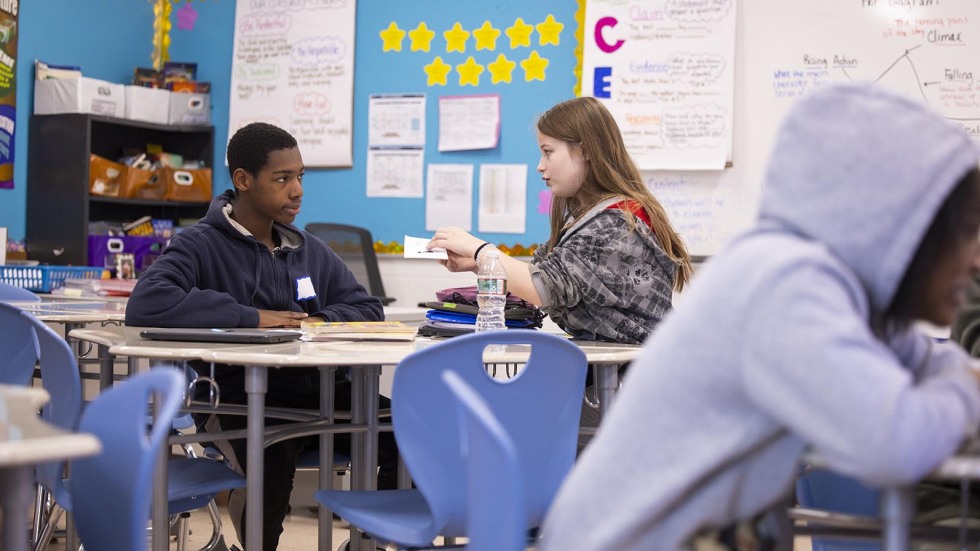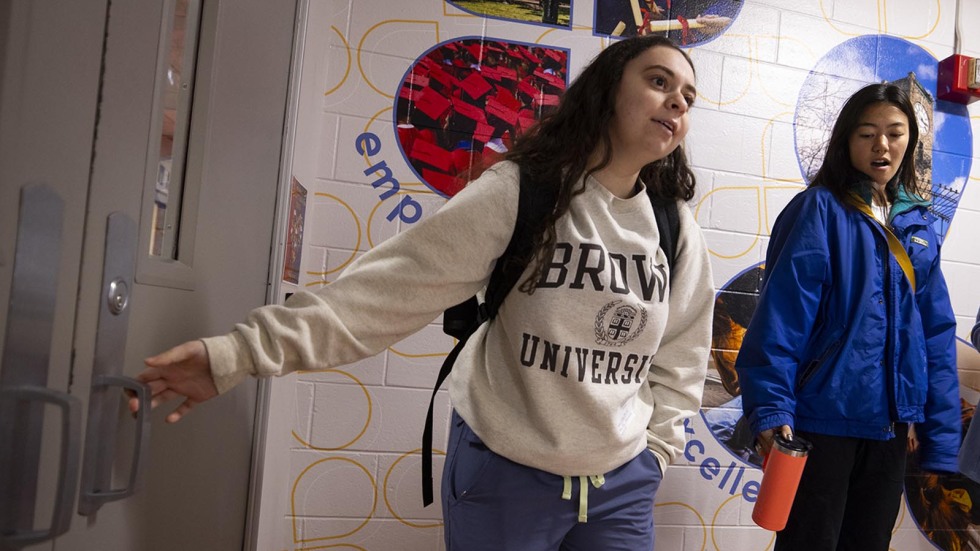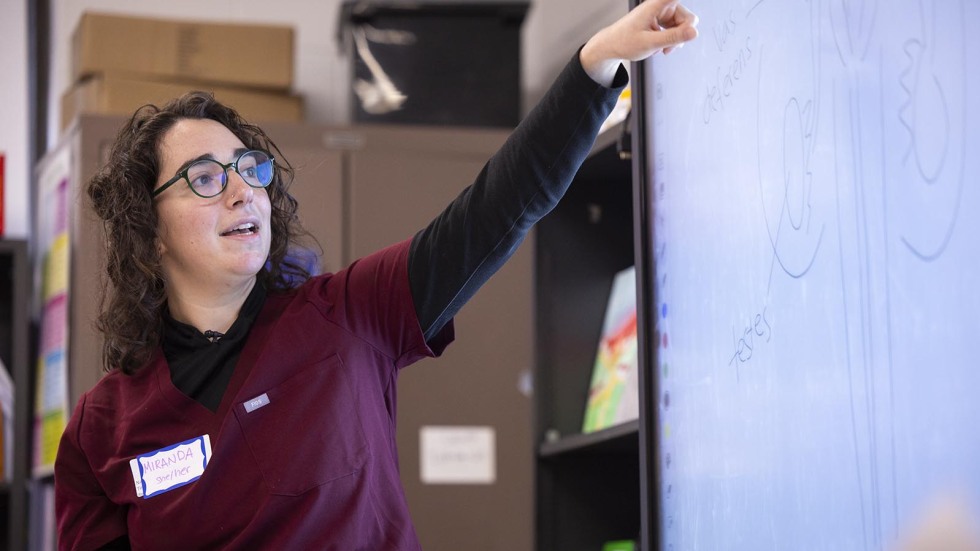PROVIDENCE, R.I. [Brown University] — What are the potential risks of having sex? How do you know if you're in a healthy relationship? Where can you go for reliable sexual health information?
Two days each month, seventh graders at Calcutt Middle School in Central Falls, R.I., have explored those questions and others thanks to a sex education program taught by students from Brown University's Warren Alpert Medical School.
Sex Ed by Brown Med started in 2014 after a group of Brown medical students attended a lecture on teen pregnancy led by Dr. Susanna Magee, a clinical professor of family medicine. The family medicine and obstetrics doctor noted that Central Falls had one of the highest rates of teen pregnancy in Rhode Island, nearly three times the state average — a fact she witnessed firsthand through her work at the city's Blackstone Valley Community Health Center. Magee recalls urging the medical students to think critically about what role they could play to support local efforts aimed at reducing teen pregnancy rates.
"I was hoping that I would excite them enough to want to do something right now, something that could change the state of health in Rhode Island," Magee said. "We're a small state — and a small action can go a long way in a small state."
And it worked. Five students, nearly all of whom had prior teaching experience through Teach for America, approached Magee with the idea to launch a sex education program for middle schoolers in Central Falls.The goal was clear: have medical students teach kids, empowering them with the knowledge essential for making informed, safe decisions about sexual health.
Backed by the medical school, which designated Sex Ed by Brown Med an elective to attract first and second-year medical student volunteers, the initiative gained approval from leaders at the Rhode Island Department of Education and the Central Falls School District. The program launched in the 2014-15 school year.
A decade later, Sex Ed by Brown Med continues to reach nearly 200 Central Falls middle schoolers each year.
